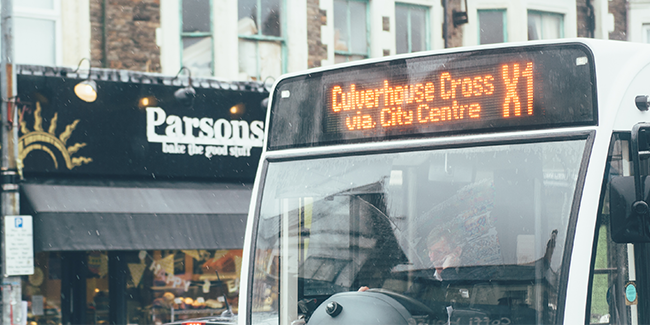The Senedd's Economy, Infrastructure and Skills Committee outlines early findings from its COVID-19 inquiry
- The pandemic is having different effects in different regions of Wales
- Tourism and hospitality industries are being hit disproportionately
- Local councils will struggle to enforce social distancing measures for businesses to reopen safely
- Concerns over how public transport will cope with social distancing; how will operators manage with substantially reduced income and is there enough buses, trains and drivers to meet demand?

Wales' economy is being hit hard during the COVID-19 crisis and the Senedd's Economy, Infrastructure and Skills Committee has been looking at the support offered by the Welsh Government and asking business if enough is being done?
Ministers and business leaders have been giving evidence to the Committee, focusing in particular on measures being taken to support the economy, public transport and skills and apprenticeship programmes.
Russell George MS, Chair of the Senedd's Economy Infrastructure and Skills Committee:
"There is no doubt that Wales is being hit very hard by the COVID-19 pandemic, proportionally more Welsh workers have been furloughed than in any other UK nation. Our Committee has been looking at all aspects of how jobs, businesses, transport and apprenticeships have been affected.
"On behalf of all those who are being affected, we are asking serious questions of the Welsh Government to make sure the right support is in place for people and businesses. We all want to make sure that we're safe and that our economy is best placed to rebound as things return to a 'new normal'.
"We're listening to experts and businesses and most importantly the people of Wales as we hold the Welsh Government to account."

Supporting businesses
Addressing the Committee, the Minister for Economy, Transport and North Wales, Ken Skates MS, said that Wales has been particularly hard hit by the pandemic. Wales has the highest proportion of businesses applying to the Coronavirus Job Retention Scheme (furloughing) and the highest proportion of businesses applying generally for UK Government schemes.
The Welsh Government's own support for business includes:
- £100 million in loans to more than 1,000 businesses through the Development Bank of Wales
- A £400 million Economic Resilience Fund grant scheme – which for phase 1 has received more than 9,500 applications, with over 6,000 offers already made to date worth over a £100m
- Non-domestic rates based grant support for small businesses and businesses operating in the retail, leisure and hospitality sectors, awarding to date 51,100 grants worth more than £626m.
Although business organisations such as the CBI, Federation of Small Businesses and the TUC told the Committee they were broadly supportive of these measures, they said there were gaps and warned that some businesses were still struggling. According to the FSB those who have fallen through the gaps include:
- Self-employed people who did not have recent accounts because they were newly self-employed or because they had taken time off after having children;
- Businesses not operating from a property as much of the support has been linked to having a property;
- Companies not VAT registered.
The Committee is also concerned that the pandemic is affecting regions of Wales in different ways and is calling on the Welsh Government to outline how it will tackle this inequality, in particular what changes might be needed to current regional support structures or regional economic priorities.
How has coronavirus affected your business, and how do you feel the Welsh Government has managed the response?

Tourism
Organisations such as the Wales Tourism Alliance (WTA) have raised concerns with the Committee that the tourism and hospitality industries will be disproportionately affected by the COVID-19 crisis.
Tourism is very likely to lose this year's summer season, when most tourism businesses make the bulk of their income, and social distancing will substantially reduce customer capacity in hospitality establishments.
Local councils are responsible for issuing grants for businesses and members of the Committee are concerned after hearing there is a disparity between local authorities when issuing grants. The Committee was told that some councils are taking longer than others to provide financial help and is now calling on the Welsh Government to publish performance data on the speed of local authorities in issuing business support grants.

Safety in the workplace
UK and Welsh Governments are both outlining ways in which people can return to work safely and how businesses can operate with social distancing.
Trade unions made it clear to the Committee that they do not think local authorities are in a position to monitor the new regulations adequately as departments were "too small" and local authorities were "already struggling".
The TUC also raised concerns that the Health and Safety Executive's footprint in Wales was too small and they were also already struggling. On 12 May the UK Government announced it would make up to £14 million available to the HSE for extra call centre employees, inspectors and equipment.
The Committee is asking the Welsh Government to explain how it will monitor the capacity of local authorities and other organisations charged with enforcing compliance with safety regulations and guidance as businesses re-open.

Public Transport
Passenger numbers have fallen substantially across public transport as a result of the pandemic and most operators are running significantly reduced services. Prior to the pandemic some rush hour bus routes were running at capacity, there were well known issues with overcrowding on the Valley Lines and Transport for Wales had been having trouble sourcing new trains to replace its aging fleet.
Social distancing will require buses and trains to operate at a maximum of around 10% capacity. The Committee is calling on the Welsh Government to outline whether the public transport network in Wales has the ability to deliver services at the same time as ensuring effective social distancing and give details of any action being taken to increase capacity.
Have your say
How has coronavirus affected your business and how do you feel the Welsh Government has managed the reponse?


